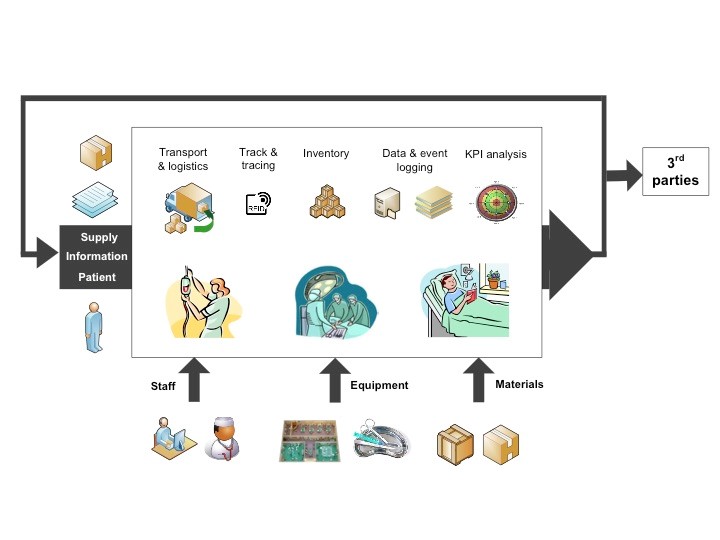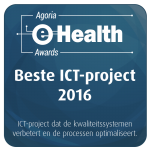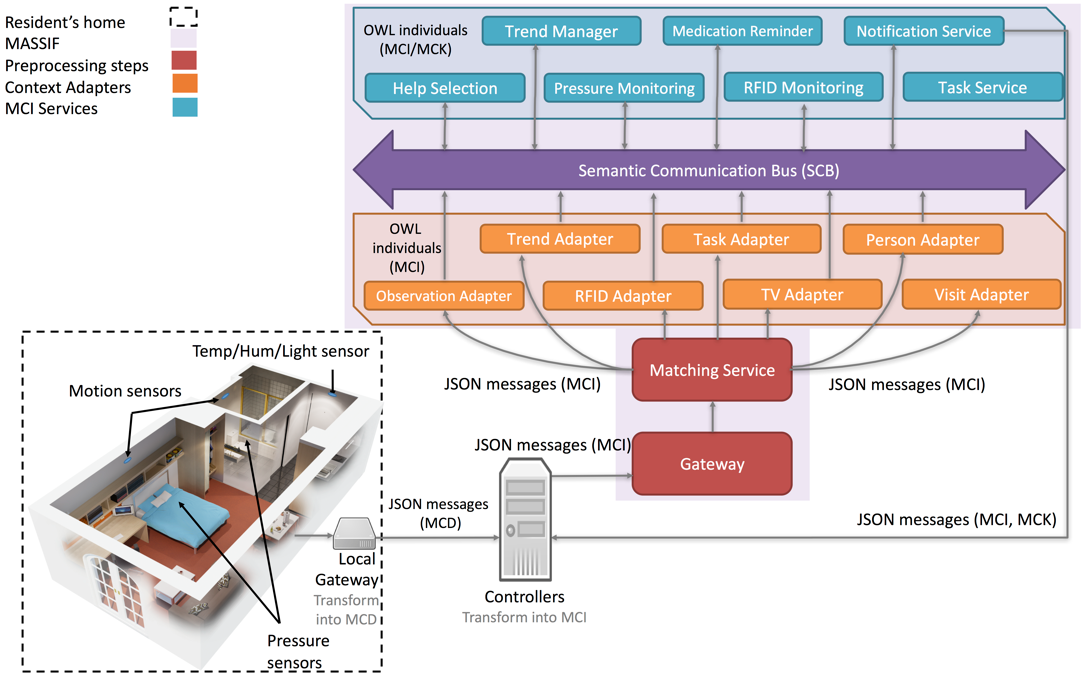WONDER: Sensor-driven, context-aware robotics for residential care
In the WONDER project a data rich, cloud-based service architecture is being deployed to enable personalised interactions from the humanoid robot ZORA with nursing home residents. Using real-life data from sensors and wearables, algorithms are developed to determine how the ZORA robot can interact in a personalised way when behavioural disturbances such as wandering are detected. In addition, WONDER investigates the requirements for the Zora robot to work 24/7 and semi-autonomously in nursing homes, assisting caregiver in the day-to-day activities.
The main focus of the iMinds research is the question on how embedding robots in smart IoT environments will allow for more intelligent robot task scheduling and context-aware robot task execution. This technology will lead to a new era of robotics in care.
More information: www.iminds.be/en/projects/wonder

Ambient aware and data enriched robotics assistance will lead to a new era of personalised care services.
HIPS: Coordinating and optimizing hospitals’ patient, medical supply and information flows
The HIPS project developed a methodology to align hospitals’ supporting workflows with respect to resources / patients / staff. The main goal of the project was to assess and demonstrate potential optimization opportunities. The case of hip replacement surgery was elaborated as an example of a complex process flow with high product variability and complex value chain situations. Using interview techniques, simulation tools on large data sets and complex workflow visualisation, tools and methodologies were developed to help hospitals realize supply chain savings.
iMinds built simulation tools based on BPMN techniques and demonstrated based on historical data sets that savings in the supply chain up to 30% can be expected.
More information: www.iminds.be/en/projects/hips

The ICON HIPS project led to a firm partnership between Amaron and Auxcis and resulted in the new ‘Generic Process Empowerment Platform for Hospitals’ product offering.
 The HIPS project received the Agoria eHealth Award 2016 for ‘Best ICT project’
The HIPS project received the Agoria eHealth Award 2016 for ‘Best ICT project’
Diagnosing heart disease with deep neural networks
In 2016, the iMinds team came up second in Kaggle’s “National Data Science Bowl” competition, based on what was generally considered to be a highly challenging dataset for heart conditions. The aim was to predict the minimal and maximal volumes of the left ventricle (heart chamber) from a set of MRI video sequences. The model had to be developed based on labeled examples from only 500 patients, being a very limited data set. Next to this, the amount of context information and the precise location in the body in which each video was recorded varied a lot between patients.
The iMinds solution was based on the combination of a large number of deep learning models. The team focused on making the top-level model combiner more robust against missing data. Next to this the confidence level of each individual model was taken into account, this being an essential element to provide the final outcome.
Uniquely fusing semantic intelligence and artificial intelligence into a single focus, the iMinds’ team aim to solve the crucial data science research challenges.
Organizing home care using a cloud-based platform
The semantic aware MASSIF platform captures, aggregates and enriches loads of data about the actual condition and context and the medical and care assistance requirements of people in a home care context. The platform allows for the intelligent and dynamic composition of services that can be personalized based on the needs and preferences of the involved stakeholders such as patients, family members, informal and formal caregivers. Based on the MASSIF platform services have been developed and demonstrated concerning the micro organization of care and the contextual detection of fall events.
iMinds designed and developed the cloud-based MASSIF platform offering the potential for contextual and personalized service composition across different care organizations.
Ease-of-use, added value and privacy aspects are key elements to a successful implementation of intelligent service platforms in the homecare environment.

